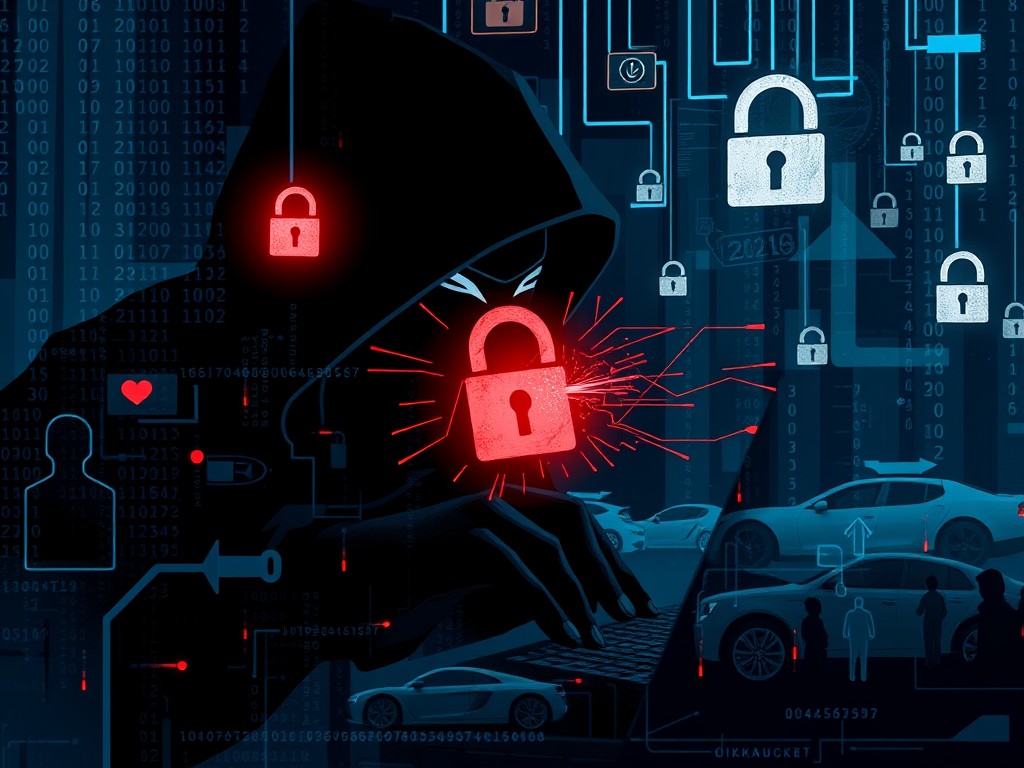CDK Cyber Attack: What Happened and Why It Matters
🚨 What Is the CDK Cyber Attack?
In June 2024, CDK Global, a software-as-a-service (SaaS) provider for thousands of auto dealerships, fell victim to a major cyber attack. The breach resulted in widespread system outages, halting daily operations for over 15,000 dealerships across North America. From sales to service scheduling, the disruption exposed the fragility of overdependence on centralized digital systems.
🧠 Who Is CDK Global?
CDK Global provides dealer management systems (DMS) — software that helps auto dealerships handle:
- Sales and inventory
- CRM (customer relationship management)
- Financing and compliance
- Parts and service scheduling
When CDK’s systems crashed, dealerships had to revert to manual methods — causing delays, customer frustration, and significant revenue losses.
💥 How Did the CDK Hack Happen?
While CDK hasn’t disclosed full technical details, cybersecurity experts suspect that:
- Attackers deployed ransomware after infiltrating backend systems
- Initial access may have come from phishing emails or compromised credentials
- The attackers disabled remote security and backup protocols to extend damage
CDK reportedly paid a multimillion-dollar ransom, but services still took weeks to fully recover.
🛑 Immediate Impacts on Dealerships
Dealerships experienced:
- Inability to process sales, titles, or repairs
- Missed appointments due to scheduling failure
- Loss of customer trust and increased operational costs
Many dealers rely solely on CDK, making them digitally paralyzed once the system went offline.
📊 What This Means for the Automotive Industry
The CDK cyber attack is a wake-up call for every dealership using third-party platforms for mission-critical operations. It reveals:
- Weak points in centralized SaaS systems
- Lack of disaster readiness in dealership infrastructure
- The growing need for vendor cybersecurity audits
For an example of how businesses adapt after disruptions, see our post on Monday Car Shipping Spikes, which highlights logistical shifts in the auto industry.
🔐 Key Cybersecurity Lessons for All Businesses
Whether you’re a dealership or a SaaS provider, this attack teaches five critical lessons:
- Backup Plans Are Essential
Keep offline backups and test recovery procedures regularly. - Limit Third-Party Risk
Use zero-trust architecture and monitor vendor systems with equal scrutiny. - Train Staff Continuously
Phishing and social engineering remain top attack vectors — ongoing employee training helps reduce exposure. - Enable Multi-Factor Authentication (MFA)
Basic security measures like MFA could have helped minimize damage. - Have a Crisis Plan
Ensure you have a public relations and internal communications plan for cyber incidents.
For further insights on how tech impacts businesses, read How Voice Cloning is Revolutionizing Customer Service in Tech Industries.
🧩 Could This Happen Again?
Absolutely. Experts say ransomware groups now target industries with low cybersecurity maturity and high operational urgency — like healthcare, logistics, and automotive retail. If your business hasn’t reviewed its cyber hygiene post-CDK attack, it’s already behind.
🧭 What Should Dealerships Do Now?
Here’s a checklist to protect against similar breaches:
- ✅ Conduct a cybersecurity audit on all vendor platforms
- ✅ Transition toward hybrid local-cloud infrastructure
- ✅ Store critical customer data with redundancy and encryption
- ✅ Join threat intelligence networks or automotive cybersecurity forums
- ✅ Review SLAs (service-level agreements) with tech vendors to ensure liability clauses exist
🔗 Related Resources on ExpressZone
- Unbearable Tooth Pain: What To Do At Home — A guide on dealing with emergencies when professional help isn’t available
- Cloud Retainer — A discussion on cloud infrastructure vulnerabilities post-breach
- Fastrac Ontrac — An analysis of fleet management tools that offer better resilience
✅ Final Thoughts
The CDK cyber attack is more than a tech incident — it’s a business crisis blueprint. Dealerships, software vendors, and B2B companies must rethink digital resilience in 2025 and beyond.
If you’re still relying on a single system for daily operations, it’s time to diversify, backup, and secure.







